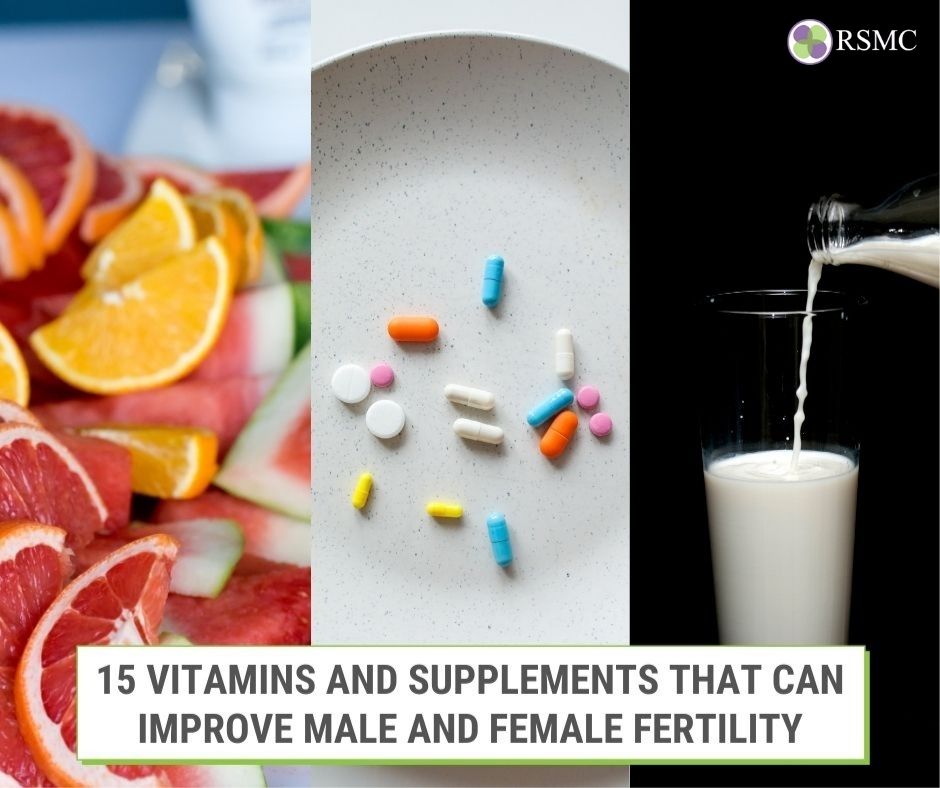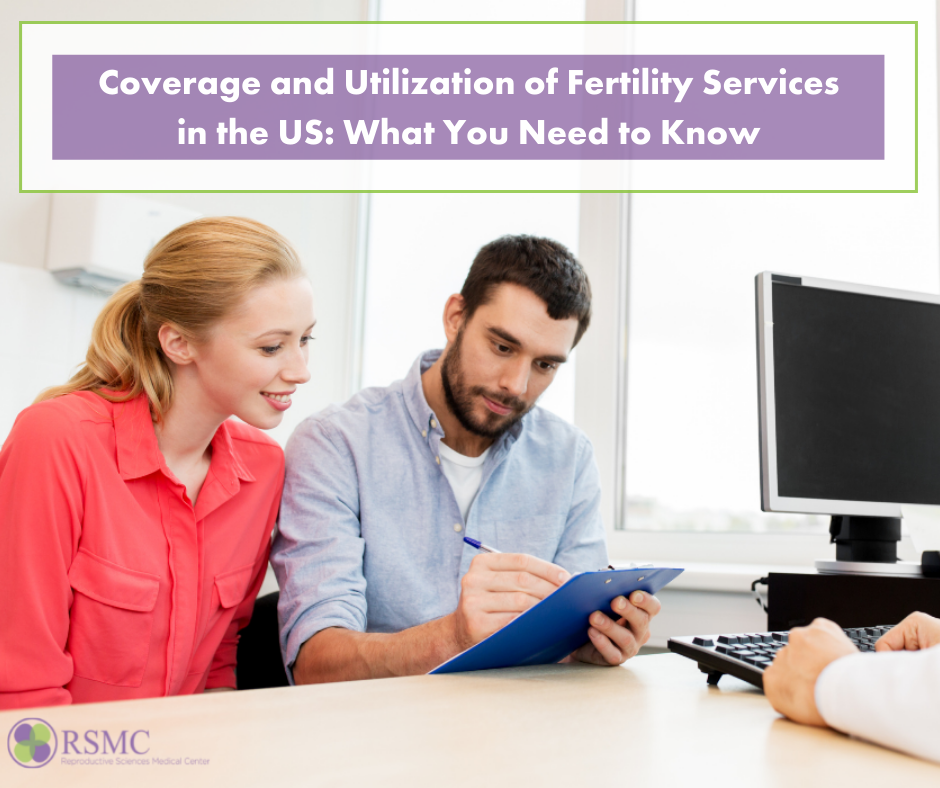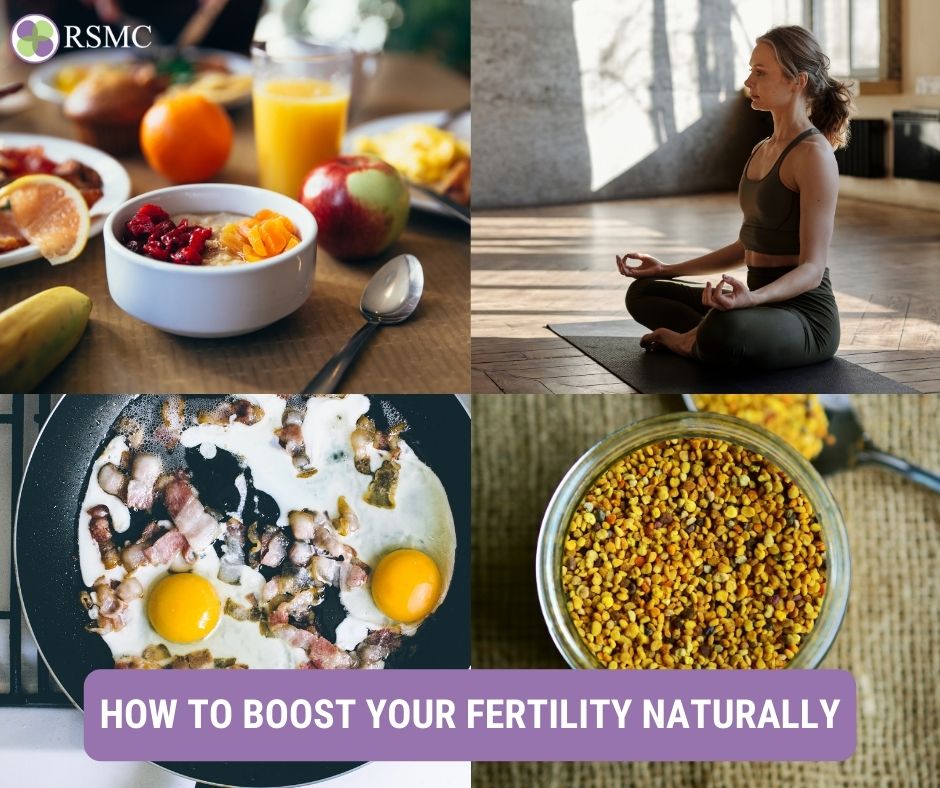Infertility can be a stressful, emotional experience for couples or individuals trying to have children. Fortunately, there are a lot of ways to better your chances of becoming a parent, and one great option to boost fertility and increase your chances of pregnancy conception, is through your diet – that is, the nutrients, vitamins, and minerals you get from food or supplements.
But before you rush to your local food store, you need to talk to your doctor for advice and guidance.
In the past, we have thoroughly discussed what foods can benefit your reproductive health. In this piece, we will discuss some of the vitamins and minerals that might be worth your while when trying to conceive and why.
What is covered
Role of micronutrients in fertility
You might be thinking that the role of vitamins on fertility is well understood, but this is not actually the case. Infertility is a difficult puzzle to solve, and our bodies are different. Moreover, research regarding vitamins, micronutrients, and their impact on pregnancy is still in the beginning stage.
However, studies have begun to show the role of vitamins in conceiving and staying pregnant.
Vitamins play crucial roles in women’s fertility health as well as many other bodily functions, like:
- oocyte maturation and quality
- ovulation and menstruation
- thyroid function
- immune function
- energy production
Adequate mineral and vitamin intake is therefore crucial to create an ideal environment for a successful pregnancy. Certain nutrients may even help relieve the symptoms of polycystic ovary syndrome (PCOS), which is a common cause of fertility problems.
Studies have indicated that certain supplements can boost sperm count and motility, helping those little swimmers to get to the eggs.
Bear in mind that more research is needed on this, though. While most of the studies conducted so far are promising, they involved only a few participants and did not use standard methodology.
Here are some common vitamins and supplements that are good for fertility and information about their dosage, effectiveness, and usage.
Vitamins
1. B Vitamins (other than folic acid)

Who needs them: both men and women
Fertility benefits
Improves egg health and prevents ovulatory infertility; it can enhance sperm quality.
It’s common knowledge that folic acid (Vit B-9) is very important before and during pregnancy. However, other B complex vitamins also help boost fertility.
A 2017 study found that a high intake of B vitamins (B1, B2, B3, B6, and B12) can help lower the risk of ovulatory infertility (infertility due to an ovulation disorder)
Moreover, low levels of vitamin B 12 has been linked to infertility in women. Research has also indicated that having a higher level of vitamin B-12 and folic acid can improve fertility in patients undergoing infertility treatment.
Health experts claimed that B vitamins could boost sperm quality, although more research is needed on this.
How much should you take?
Fortunately, a B-complex multivitamin can supply you with adequate amounts of most, if not all, of these recommended B vitamins every day.
2. Vitamin C

Who needs it: men
Fertility benefit
Vitamin C is shown to increase sperm count and motility.
Vitamin C is an effective antioxidant that can help prevent cellular damage and improve iron absorption and hence boost both males’ and females’ fertility. A review of several studies suggests that taking Vitamin C in conjunction with vitamin E can increase sperm count, sperm motility, and at times, DNA integrity in men.
How much should you take?
The RDA (recommended daily allowance) of vitamin C is 75 mg for men and 90 mg for women.
3. Vitamin D

Who needs it: both men and women
Fertility benefits
Increases semen quality; improves ovarian stimulation.
Research has found a link between vitamin D deficiency and infertility in women. A 2019 analytic study found low levels of vitamin D (the sunshine vitamin) in women who were unable to get pregnant due to polycystic ovary syndrome (PCOS).
Studies have associated deficiency in this vitamin with fertility problems in both women and men. Hence, it’s crucial to get tested for vitamin D deficiency when trying to conceive. Consult with your healthcare provider for advice regarding the right dose of the supplement to take, based on your vitamin D level at the moment.
A meta-analysis evaluated whether there is a link between vitamin D levels and the rates of live birth in patients undergoing fertility treatment. The research team found that those with a vitamin D level above 30 ng/mL had significantly higher live birth rates than patients with a lower level of the vitamin.
In studies conducted on Caucasian and non-Hispanic white women, the researchers found that those who have a normal level of vitamin D were 4X more likely to conceive than those with a low vitamin D level.
Similarly, another research study found that the pregnancy rates were higher in donor egg recipients with a normal vitamin D level compared to those with a low level of the vitamin.
Having a normal vitamin D level helps boost fertility and increases the chances of a healthy pregnancy. Lack of vitamin D during pregnancy has been linked to an increased risk of gestational diabetes, premature birth, pre-eclampsia, and bacterial vaginosis.
How much should you take
Even though the data for vitamin D and fertility are inconclusive, studies have linked the vitamin D levels of 30 ng/mL and above to higher pregnancy rates.
Women with a vitamin D level below 24 ng/ML should take at least 4000 IU every day. For those with a vitamin D level between 24 and 30 ng/mL, the recommended amount is 2000 IU per day.
Once the level of 30 ng/mL is reached, it is important to be taking 2000IU of vitamin D every day to maintain a normal level of vitamin in the body.
4. Vitamin E

Who needs it: both women and men
Fertility benefits
Improves sperm motility; enhances female reproductive health in general.
Vitamin E (tocopherol) possesses excellent antioxidant properties that can improve sperm function in men and promote female reproductive health. However, more studies are needed to know the effectiveness of the vitamin when it comes to fertility.
How much should you take?
The recommended daily allowance of vitamin E for adult men and women is 15.milligrams per day.
Supplements
5. Acetyl L-carnitine (ALC)
Who needs it: both women and men
Fertility benefits
Rich in antioxidants that promote healthy female reproductive system; improves sperm motility.
Acetyl L-carnitine is probably not the first thing you think about when thinking of vitamins, but that does not mean it is not worth including on your list. Acetyl L-carnitine (ALC) is an acetylated form of L-carnitine (LC) – an amino acid that helps in the conversion of fat into energy.
At times, both ALC and LC are taken together to boost fertility in women.
A 2018 study showed that, while L-carnitine also improves fertility in women, acetyl L-carnitine has higher amounts of antioxidants. These antioxidants are thought to delay age-related changes in the female reproductive system. According to this study, supplementing with ALC in conjunction with LC helped relieve the symptoms of:
- Polycystic ovary syndrome (PCOS)
- Amenorrhea (absence of menstruation)
- Endometriosis
Studies have also suggested that both acetyl L-carnitine and l-carnitine can enhance sperm motility in men. The recommended dosage to improve male fertility ranges from 1 to 3 grams per day for both supplements. However, it is important to speak with your healthcare provider before you start supplementing with ALC or LC for right dosing and safety.
6. Calcium
Who needs it: men and women
Fertility benefits
Boosts sperm production.
While there is no particular study indicating that extra calcium helps improve fertility, it is important that men and women get enough amounts of this mineral to prevent deficiencies. A 2019 research study has associated calcium deficiency with male infertility since calcium plays a key role in sperm production.
How much should you take?
The recommended daily allowance (RDA) of calcium is 1000 mg. But provided you are not deficient in this mineral, it would be better to obtain your calcium from healthy food sources, i.e., full-fat yogurt (instead of taking dietary supplements).
7. Coenzyme Q10
Who needs it: both men and women
Fertility benefits
Boosts sperm mobility; enhances ovarian response during IVF.
Although your body naturally produces coenzyme Q10, increasing the amount of this mineral in your bloodstream can provide several fertility benefits, especially if you are undergoing IVF. A 2018 research study showed that pre-supplementation with Coenzyme Q10 enhanced ovarian response in women completing an IVF cycle.
New studies have also indicated that CoQ 10 supplementation can boost sperm concentration and mobility in men dealing with infertility. However, a 2013 review of meta-analysis and studies found no significant evidence that coenzyme Q 10 improves pregnancy or live birth rates.
8. Folic acid
Who needs it: women
Fertility benefits
Raises the success chances of fertility treatment; helps achieve pregnancy.
Getting adequate amounts of folic acid is not only a wise decision during pregnancy. It may also be a great idea when trying to become pregnant.
According to health experts, supplementing with folic acid before pregnancy can help increase the odds of achieving pregnancy, improve success chances of fertility treatments, and lower the risk of having a baby with neural tube defects.
How much should you take?
The recommended daily allowance of folic acid is 600 micrograms for pregnant women. Also, women who are trying to conceive or may get pregnant are advised to supplement with a dose of 400-800 micrograms of folic acid before getting pregnant.
9. Iron
Who needs it: women
Fertility benefits
Prevents anemia due to insufficient iron.
The deficiency of iron in the body can lead to ovulatory infertility, which may prevent women from achieving pregnancy. In a study of more than 18,000 women, the researchers found that iron supplementation seems to reduce the risk of ovulatory infertility.
If you are suffering from an ovulatory disorder, it is important to speak with your doctor regarding how to get more iron – whether from food or supplements.
10. DHA Omega-3s
Who needs it: both women and men
Fertility benefits
Improves sperm motility; helps women above 35 conceive.
The consumption of seafood as a part of a healthy diet has been linked to higher fertility in men and women. Therefore, people who are trying to become pregnant are advised to take omega-3 supplements if they don’t regularly eat seafood, which is a rich source of omega 3 fatty acids.
11. Selenium
Who needs it: women and men
Fertility benefits
Lowers the risk of miscarriage; improves semen quality.
Although selenium may not be getting a lot of hype, the mineral may play a key role in the reproductive system.
A 2015 study suggests that selenium deficiency can lead to poor sperm motility, low semen quality, and miscarriage. Another research conducted in 2019 reports that selenium may help maintain the health of the fluid surrounding the egg follicles in women.
Since the male body needs selenium to produce sperm, some studies have shown that a combo of selenium and vitamin E can help improve sperm motility and semen quality.
How much should you take?
The recommended daily allowance for selenium is pegged at 55 micrograms per day for adult men and women.
12. Zinc
Who needs it: both men and women
Fertility benefits
Promotes egg development and fertilization; enhances sperm quality.
Zinc is very important for the production of sperm, and several studies have linked zinc deficiency to low-quality sperm in men.
However, there is presently no evidence that zinc can be associated with male fertility. As a matter of fact, a 2020 study claimed that supplements containing folic acid and zinc did not boost sperm function, sperm count or increase live birth rates.
How much should you take?
Regarding zinc and female fertility, a 2019 study has linked lower levels of zinc in the blood to a longer time to conception. The recommended daily amount for zinc is 11 mg for men and 8 mg for women.
Other fertility supplements that are claimed to improve fertility
13. Myo-inositol
This is the vitamin B component found in cell membranes. It can help boost fertility, reduce weight, improve triglycerides, and raise the levels of HDL cholesterol in the body. Myo-inositol can also improve hyperandrogenism and polycystic ovarian syndrome by reducing the body’s resistance to insulin.
14. L-Arginine
L-arginine is an essential amino acid that helps with immune function, cell division, and the release of hormones in the body. Studies have indicated that this mineral can help boost fertility in women who have had unsuccessful IVF treatments in the past.
15. Melatonin
Melatonin is an effective antioxidant that helps modulate the sleep-wake cycles (circadian rhythm) in humans.
Should I take a multivitamin instead?
Since there are many micronutrients that can impact fertility, it may be more convenient to take just one multivitamin instead of buying loads of different supplements.
Generally, people who are trying to conceive are advised to take a good, quality prenatal vitamin. Women should look for a product that has at least 150 mcg of iodine, 300 mg of chlorine, 18 mg of iron, 400 mcg of folate, and 600 IU of vitamin D. Men should go for an antioxidant-rich multivitamin that can offer approximately 200 % of the recommended daily value for zinc, and vitamin E, and vitamin C
Risks of taking dietary supplements
Even though most vitamins can be purchased over the counter, that does not mean that they pose no health risks. Some supplements can negatively interact with drugs you may be using, leading to unwanted side effects or exacerbating existing medical conditions’
While it is very unlikely to overdose on vitamins, there is a possibility of taking extremely high doses to the extent that it becomes harmful. Some nutrients have a certain tolerable upper intake level – that is, the highest level of daily intake that is unlikely to produce adverse health effects.
To ensure you don’t overstep these limits, follow dosage instructions on the label of supplements and speak with your doctor before starting a new supplement or vitamin.
The bottom line
There are a lot of factors you can’t control when dealing with infertility – your age, genetic, irregular menstrual cycle, etc. However, one thing you have full control over is your food, which provides the much-needed nutrition, including minerals and vitamins. Take a fertility consultation with our fertility doctors to learn what would be the right balance of vitamins for you and what other fertility treatment options are available.

























